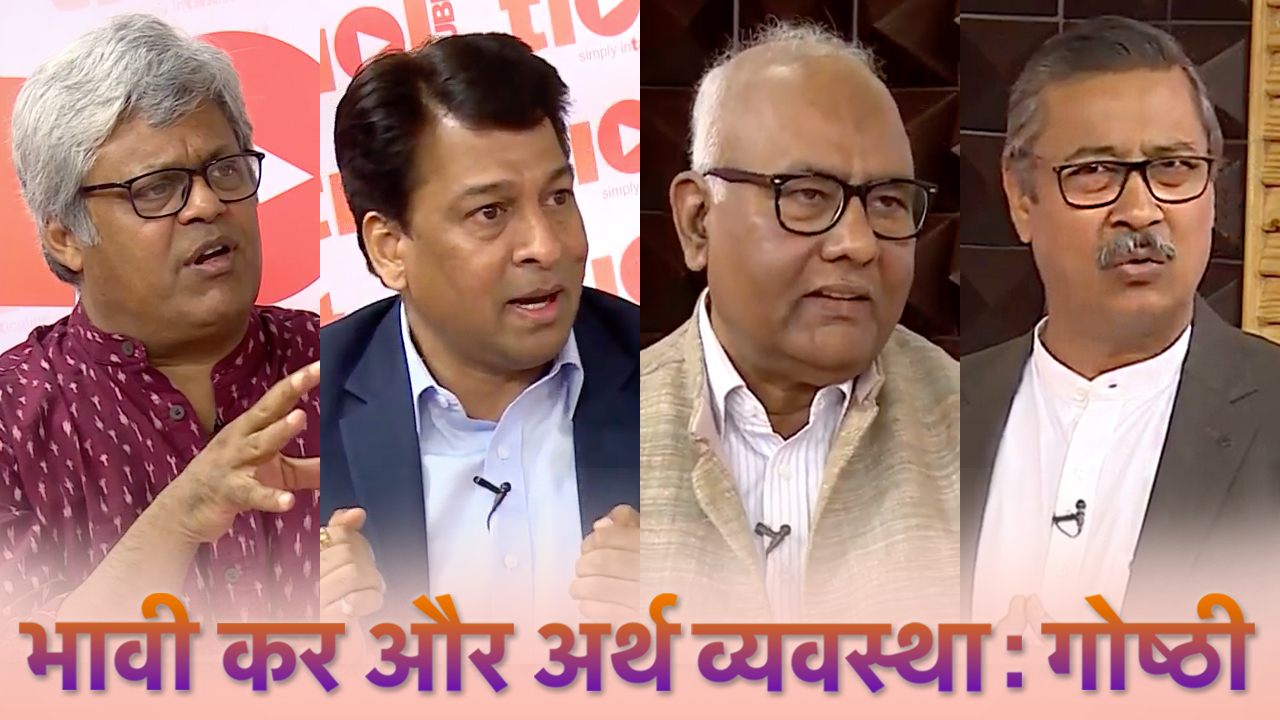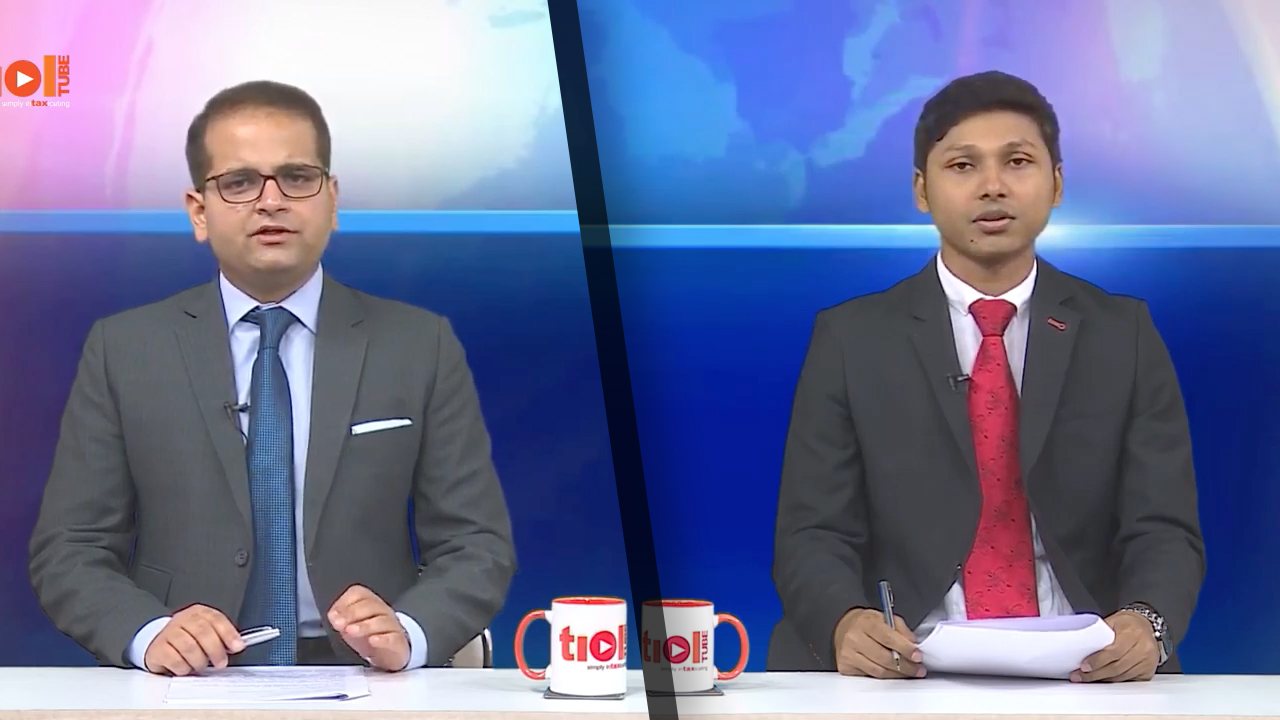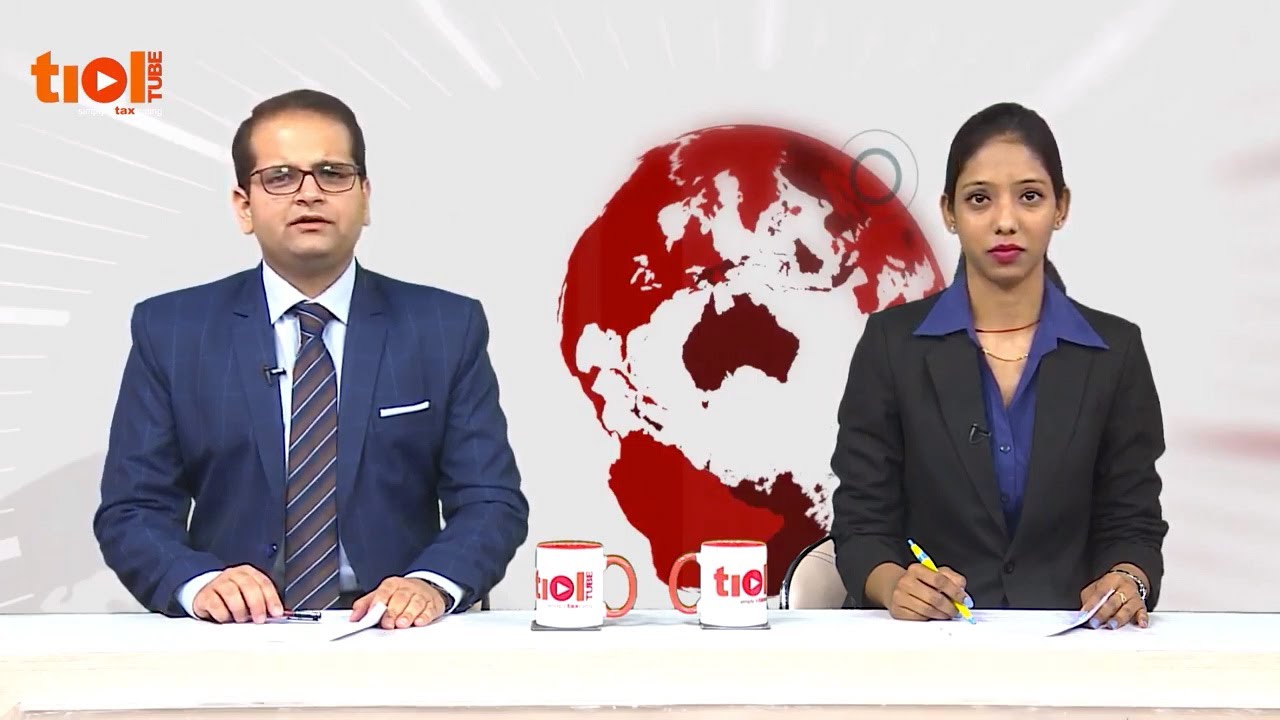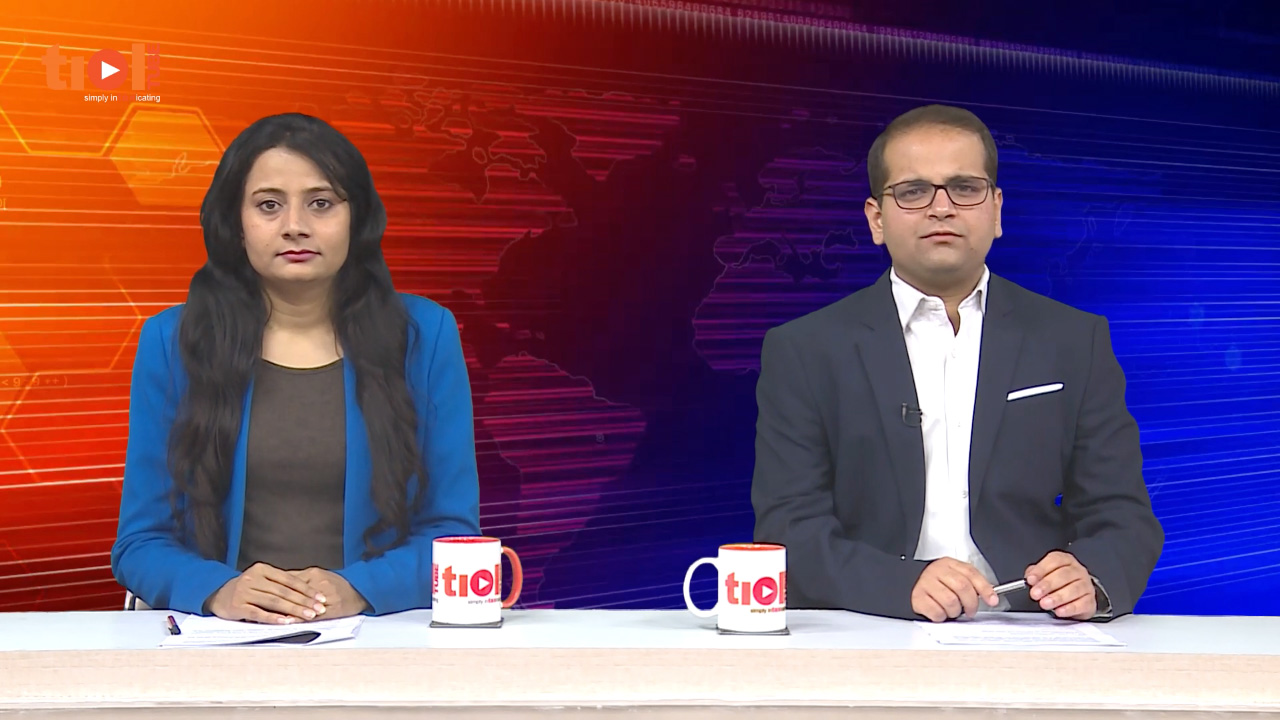|
SERVICE TAX
2019-TIOL-1126-CESTAT-BANG
Cochin Shipyard Ltd Vs CCE
ST - Assessee have challenged the impugned order stating that for a service to be taxable under category of Commercial Training or Coaching Service, it has to satisfy the definition of said service as per Section 65(27) of FA, 1994 - In terms of said Section, any training or coaching leading to a certificate recognized by law falls under the category of excluded services - Since the certificate issued after completion of course is recognized by Director General Shipping in terms of the said Act for the purpose of determining suitability of officers going on board the ship, the certificate issued by them on completion of the course is recognized in law and hence, the services provided for such courses fall under the excluded category - It is quite evident that the certificate issued by institute in terms of Para 4.17 of the said DGS order is the certificate which is duly recognized by DG Shipping for all the purposes - There is no further certificate issued as has been observed by the Commissioner - To a specific query raised by Bench, Revenue was not in a position to buttress the stand taken by Commissioner in his order - The certificates issued are the ones recognised in law and hence, the courses conducted by assessee in this regard fall under the exclusion category of taxable services in category of Commercial Training or Coaching services - The courses conducted by assessee are within the excluded category of definition, hence, not liable to service tax - In respect of second issue, i.e. levy of service on Consulting Engineer services received from abroad on reverse charge basis in the case of Indian National Shipowners Association - 2008-TIOL-633-HC-MUM-ST as affirmed by Supreme Court , it has been held that the provision of levy on reverse charge basis was available only from 18.4.2006 - Prior to that there was no provision for charging service tax on reverse charge, thus in absence of any machinery provision to charge service tax though leviable could not have been collected from assessee - In case of Intercontinental Consultants and Technocrats Pvt. Ltd. - 2018-TIOL-76-SC-ST , it has been held that reimbursements made during the course of provision of services cannot be added to the value of services provided/received - Assessee have claimed that in case of demands made under Consulting Engineering Services value determined includes the reimbursable charges also - Hence, they have prayed that the value of services needs to be redetermined after allowing deductions towards such reimbursable charges - The service tax on Consulting Engineering services received from abroad on reverse charge basis is leviable from 18.4.2006 onwards after allowing the deductions as held by Apex Court in the case of Intercontinental Consultants and Technocrats Pvt. Ltd. - Accordingly, for redetermination of the service tax payable on this account the matter needs to be remanded back to the adjudicating authority: CESTAT
- Matter remanded: BANGALORE CESTAT
2019-TIOL-1125-CESTAT-DEL
CGST & CE Vs Krishi Icon
ST - The assessee is engaged in providing construction of residential complex services, real estate agent services and business support services - It was alleged that the assessee have wrongly availed Cenvat credit of service tax paid on amount of commission paid to sales/ commission agents as the said commission agents were concerned with sale but not related to promotion of their goods, as such their activity was not related to any activity specified in inclusive part of definition of input service provided under Rule 2 (l) of CCR, 2004 - Whether the explanation added in Rule 2 (l) of CCR, 2004 vide notfn dated 03/02/2016 has retrospective effect or not, has come before this Tribunal in the matter of Essar Steel India Ltd. 2016-TIOL-520-CESTAT-AHM in which this Tribunal has held that the explanation inserted in Rule 2 (l) of Rules 2004 by Notfn 02/2016-CX(NT) should be declaratory in nature and effective retrospectively - Explanation to Rule 2 (l) of Rules, 2004 says it in clear terms that there is no bar on availment of Cenvat credit on sales promotion service by way of sale of dutiable goods on commission basis - From the clarification itself, it is understood that if a commission agent is paid commission on account of sales of goods, his services are qualify to be input service and Cenvat credit of service tax paid on such service is admissible to the recipient of service - The issue stand settled after the said clarification itself - Further, this issue has also been clarified at point B-30 of Minutes of Tariff Conference of Central Excise held on 28-29th October 2015 circulated vide F. No. 96/85/15-CX. I dated 07/12/2015 wherein subject service has been considered as input service - Taking into consideration the circumstances under which the explanation was inserted in Rule 2 (l) of Rules, 2004 and consequences of explanation to extent the benefit to the assessee as per Board Circular, this Tribunal has constantly taken the view that the explanation inserted in Rule 2 (l) of Rules, 2004 by notfn dated 03/02/2016 is declaratory in nature and has to be complied retrospectively - No reason found to differ with the constant view taken by Tribunal in catena of decisions - In view thereof the appeal filed by the Department is rejected: CESTAT
- Appeal rejected: DELHI CESTAT
CENTRAL EXCISE
2019-TIOL-177-SC-CX
CE, C & ST Vs Ghodawat Industries (I) Pvt Ltd
CX - During the relevant period, an SCN had been issued to the assessee-company - On adjudication, the Commissioner settled the issue in favor of the assessee - Before the Tribunal, the Revenue then claimed that the Commissioner did not discuss the merits of the case & merely followed orders passed in respect of the same assessee in earlier matters - The Tribunal noted that the earlier order passed by the Commissioner had been accepted by the Revenue & no appeal had been filed against the judgment - Hence it was observed that the Commissioner rightly invoked the principle of res judicata considering that the period involved in the SCN had already been adjudicated in the earlier order - Hence the Tribunal dismissed the Revenue's appeal - Hence the present SLP by the Revenue.
Held - The delay is condoned - Notices be issued to the parties: SC
- Notice issued: SUPREME COURT OF INDIA
2019-TIOL-886-HC-MUM-CX
CCGST & CE Vs Radhakrishna Foodland Carriers Pvt Ltd
CX - Revenue is in appeal against impugned order of Tribunal in 2017-TIOL-1152-CESTAT-MUM wherein the assessee's refund claim lakhs was allowed - This on the basis that they are entitled to the benefit of Notfn 1/2009-ST - It is very clear that the issue arising in the present appeal is with regard to applicability of an exemption Notification - Thus, it is a clear case of rate of duty issue - Therefore, in terms of Sections 35G and 35L of CEA, 1944 which have been incorporated in Section 83 of FA, 1994, the appeal filed by assessee is not maintainable before this Court: HC
- Appeal dismissed: BOMBAY HIGH COURT
2019-TIOL-1124-CESTAT-MUM
SS Engineer Vs CCE
CX - Contracts entered into by appellant for supply of goods viz. TPH Boiler and supervision or erection and commissioning - demand confirmed by considering the contract price as the value of the goods - appeal to CESTAT.
Held: It is not the allegation that the appellant's own goods and the bought out goods when put together would result into emergence of new product viz. Boiler - appellant did not clear the boiler in CKD or SKD condition - appellant's own manufactured goods, at the time of clearance from the factory, have identity of individual components or equipment which has not been disputed - There is no reason to demand duty on the bought out goods as the appellant has not manufactured any goods which are recognizable as excisable goods - bought out goods have been used in erection of Sugar plant or its sections at site which are non-excisable and no credit is availed of such duty paid on bought out goods - bought out goods which were taken directly to the site for erection/installation does not invite any excise duty - goods which have come into existence after using the bought out goods and the appellant's own manufactured goods has resulted into immovable property i.e. whole sugar plant or its part in the form of Power Section or other sections -no reason to demand any duty on the same - when Revenue seeks to demand duty on the value of bought out goods, the appellant shall be entitled for CENVAT credit of duty paid on such bought out goods - If the contention of the Revenue is accepted that at the site, excisable goods come into existence, then the same shall be eligible for exemption notification 67/95-CE since the goods come into existence at the site which is well within the Sugar Mills - on this count also demand does not sustain - all the facts were within the knowledge of the department since very beginning and even earlier the demand that was confirmed was eventually set aside by Tribunal - there is no ground to raise demand by invoking extended period of limitation as there is no suppression or malafide intention on the part of the appellant - demand and penalty confirmed against the appellants is, therefore, not sustainable on multiple counts - impugned order set aside and appeal allowed with consequential relief: CESTAT [para 8 , 9, 10, 11, 12, 13]
- Appeal allowed: MUMBAI CESTAT
2019-TIOL-1123-CESTAT-MUM
Kalyani Carpenter Special Steels Ltd Vs CCE
CX -Section 4 of the CEA, 1944 - Running royalty, whether includible in the assessable value.
Held: Running royalty is includible in the assessable value of blooms/bars cleared by the appellant as the royalty is not in the nature of brand or IPR but in the nature of Technology Transfer Fee for the purpose of Casting Speciality Alloy - since the unit at Ranjangaon is entitled to CENVAT credit of the duty paid by the appellant at Mundhwa unit, which claim is not contested by the Revenue, invocation of extended period of limitation u/s 11A of the CEA, 1944 cannot be upheld - since there is no allegation of suppression/mis-declaration, penalty u/s 11AC is set aside - It is also a settled law that when the goods are not available for confiscation, no redemption fine can be imposed, hence same is set aside - appeals are partly allowed: CESTAT [para 5, 6, 7, 10]
- Appeals partly allowed: MUMBAI CESTAT
2019-TIOL-1122-CESTAT-HYD
Rishabh Polymers Pvt Ltd Vs CCE & ST
CX - These two applications for rectification of mistake are filed against Final Order dated 19.07.2017 - Assessee was visited by anti-evasion officers and a case was made out of clandestine removal of goods, unaccounted finished goods, raw-materials, clearance of modvat availed inputs and non-maintenance of proper accounts - SCN was issued; which was contested on merits for denying the allegations of both the assessees - During pendency of adjudication of SCN, Govt of India introduced "Kar Vivad Sa mad nan Scheme" (KVSS) under which immunity from interest and penalties were granted on following the procedure of filing the application before adjudication of the case - The assessee filed application under KVSS Scheme on 29.01.1999 for settlement of case, but the adjudication order was passed on 28.01.1999 and served on assessee on 29.01.1999 - The application filed by assessee was rejected by an order dated 10.03.1999 - A writ petition was filed by them before High Court of A.P on 22.03.1999 against the rejection of KVSS application and an interim order was passed by the High Court on 31.03.1999 permitting the assessee to make payment as declared by him under KVSS, pending final disposal of writ petition which was complied with - The said writ petition was finally dismissed by High Court in 2015 and an SLP was preferred before the Apex Court which was also dismissed on 12.05.2015 - Subsequently, assessee preferred appeal against the O-I-O received by them on 29.01.1999 before 1st Appellate Authority on 26.05.2015 - The 1st Appellate Authority had dismissed these appeals as being time barred before him against which appeals preferred by them were also dismissed by Tribunal by Final Order dated 19.07.2017 - The Tribunal by said order did not agree with the grounds of appeal and held that the order of 1st Appellate Authority was correct - There is no error apparent on the face of the record in the Final Order dated 19.07.2017: CESTAT
- Applications dismissed: HYDERABAD CESTAT
CUSTOMS
2019-TIOL-179-SC-CUS
Anil Kumar Anand Vs CC
Cus - The appellant herein is an importer of electric decorative lightings - During the relevant period, it filed Bill of Entry for clearance of a consignment under two brands - Upon completion of enquiry, proceedings were initiated for re-valuing the present consignment as well as past consignments for the period between Dec 2012 to Jan 2015 - The goods were proposed to be confiscated & penalties were imposed under provisions of the Customs Act - The appellant was also served SCN u/s 28 of the Act, on grounds that the appellant did not knowingly declare the brand of the imported goods & that it had undervalued the same with intent to evade payment of duty - It was also alleged that the appellant imported branded goods from its related party and under-valued the same to evade payment of duty - Duty demands were raised for both present & past consignments - The goods were confiscated, to be released upon payment of redemption fine - Penalty was imposed - Subsequently, the Tribunal sustained the findings of the adjudicating authority - Hence the present appeal.
Held - To begin with, it is noted that electrical decorative lights normally are not branded products, exceptions apart - Though the imported goods carried brand names such as 'Diyas' and 'mAntra', they are not trademarks so as to make them an exclusive product - Evidently, there is also some mix up in understanding of trademark protection as it had been compared with patented goods - It is seen that data was available & could have been used to obtain pricing for imports from the UK of identical or similar goods - Ironically, if the adjudicating authority did consider trademark to be significant, it could not have simultaneously ignored imports under the same trademark made from different countries where there were no related parties - Hence adjustments for the distance from which import was made, or size of consignment was required, if needed, as per Rules 3 to 5 of the Customs Valuation (Determination of Value of Imported Goods) Rules, 2007 - Hence there was no need to directly determine transaction value as per Rules 7 to 9 - The principle of sequential application applied here - This is shown by the provisions of Rule 3(4) which mandate sequential implementation of the rules, i.e., Rules 3-5 would first have to be exhausted - Only an inability to apply them would bring Rules 7-9 in the picture - Once statutory Rules exist & mandate sequential implementation, the adjudicating authority is bound to proceed as per thosr rules & in that manner - Thus the order of the Tribunal as well as that of the adjudicating authority are liable to be quashed - The matter is remitted to the Adjudicating authority to sequentially apply the Rules 3-5 & proceed afresh: SC (Para 2,3,18-22)
- Assessee's appeal allowed: SUPREME COURT OF INDIA 2019-TIOL-887-HC-MAD-CUS
Mayoora Enterprises Vs Customs And Central Excise Settlement Commission
Cus - The case of Petitioner is that he is a trader in DEPB licence - In course of business, the Petitioner states that Mr.J.Kaviyarasan, Manager(Imports) of M/s.Sabari Logistics approached the petitioner for DEPB licences on behalf of M/s.Sri Devi Extractions Pvt Ltd - The payment for the said two licences was received in the name of M/s. Five Star Marine Exports - Subsequently, Mr.J.Kaviyarasan approached the Petitioner with another cheque drawn in favour of petitioner's concern, namely, M/s.Mayoora Enterprises and explained that Ms/.Sri Devi Extractions Private Limited had issued the cheque wrongly in favour of petitioner's concern and requested for encashment of the same for the reason that the return of cheque would delay the payment for the licence already supplied to importer, namely, M/s.Sri Devi Extractions Private Ltd. - The case of Respondents is that the SCN was issued to petitioner for limited purposes of imposing penalty under Section 112(A) of Customs Act and that such demand for penalty does not come within the scope of Section 127(B)(1) of Customs Act - In addition, the Respondents submit that the Petitioner did not reply to the SCN and approached the Settlement Commission without exhausting the remedy - It is clear that a common SCN was issued to M/s. Sri Devi Extractions Private Limited, Sri Vijay Jhavesr, Sri J.Kaviyarasan and Khader Nawaz, namely, the Petitioner - It is also the admitted position that the primary applicant and other co-noticee approached the Settlement Commission and the said Application was admitted and settled vide Admission-cum-Final Order dated 28.08.2006 - It is just and necessary that the application of petitioner for settlement should also be taken up for hearing and decided on merits - Accordingly, the impugned order is liable to be quashed - Consequently, the First Respondent is directed to consider the Settlement Application filed by the Petitioner and dispose of the same on merits by a speaking order within a period of three months: HC
- Writ Petition allowed: MADRAS HIGH COURT
2019-TIOL-1128-CESTAT-MUM
Tibco Software India Pvt Ltd Vs CCE
Cus - Remission of duty u/s 68 of the Customs Act, 1962 in respect of warehoused goods that were destroyed in fire - Range Superintendent submitted a report after verification that the goods were damaged and not usable - appellants relinquished the title to goods - Deputy Commissioner informed that claim for remission cannot be allowed for the reason that the goods were cleared under notification 52/2003-Cus by filing bill of entry and were in use for a period of three years and insurance claim has been settled; that the appellants should pay the duty on depreciated value - since this order was upheld by the Commissioner(A), the appellant is before the CESTAT.
Held: Appellant is a STPI unit and has been granted licence u/s 58 & 65 of the Customs Act for warehousing and for undertaking manufacture and other operations in respect of warehoused goods - both the sections stipulate that the appellants shall insure the goods deposited in the warehouse against pilferage, theft, fire accident and other natural calamities and thus by not executing the bond as required, appellants have violated the conditions of licence issued u/s 58 - It is settled position in law that when a manner is prescribed in law for performing a function, then that needs to be done in that manner only - appellants should have insured the goods to the extent of duty deferred in respect of the imported goods destroyed in fire - in terms of B-17 bonds executed they have bound themselves in respect of the imported/warehoused goods - appellant having failed to insure the goods for the Customs duty involved in the goods deposited in the warehouse cannot seek benefit u/s 23 of the Customs Act - Therefore, demand of Customs duty on the imported raw materials which were destroyed in fire as such or which were contained in the finished goods destroyed in fire is clearly sustainable in law -so also by not fulfilling the conditions of licence issued u/s 58 of the Act, appellants have contravened the provisions to that extent and hence section 23 should not be applicable - By allowing benefit of s.22(2), the Deputy Commissioner has himself allowed the remission to the extent of the damage caused to the goods - since the goods have not been destroyed but damaged and have remnant value, the order demanding duty on the abated value cannot be faulted with - if the case of the appellant is that the goods had been fully damaged, then abated value shall automatically be zero - no merits in the appeal filed, hence dismissed: CESTAT [para 5.4, 5.6, 5.7, 5.8, 5.9, 6.1]
- Appeal dismissed: MUMBAI CESTAT
2019-TIOL-1127-CESTAT-MUM
Venkata Rao Infra Projects Pvt Ltd Vs CC
Cus - Notification 21/2002-Cus - Exemption claimed in respect of ‘Power Paver Finisher SF-3000-Slip Form' in terms of sr. no. 230 of the notification denied on the ground that the same was used for construction of 12 kms of road connecting Vishakhapatnam Port Road and later diverted for type of project not covered by the notification i.e. laying of platform at Vishakhapatnam airport under contract with AAI, Vishakhapatnam - machine was seized and later provisionally released on payment of duty - SCN issued, exemption denied and demand confirmed in adjudication proceedings along with appropriation of amount paid and imposition of penalties - appeal to CESTAT.
Held: Contract for construction of platform at airport was neither awarded by or on behalf of the Ministry of Surface Transport by National Highway Authority of India, by the PWD of aState Government or by a road construction corporation under the control of the Government of a State or Union Territory - Issue is squarely covered by the Tribunal judgments as upheld by the Supreme Court in the cases of Patel Engineering Ltd., - 2012-TIOL-2027-CESTAT-MUM Shreeji Construction - 2013-TIOL-441-CESTAT-MUM and Gammon India Ltd. - 2011-TIOL-60-SC-CUS - following the same, no merit found in the contentions made by the appellant - impugned order upheld - appeals rejected: CESTAT [para 5, 6]
- Appeals rejected: MUMBAI CESTAT
|









